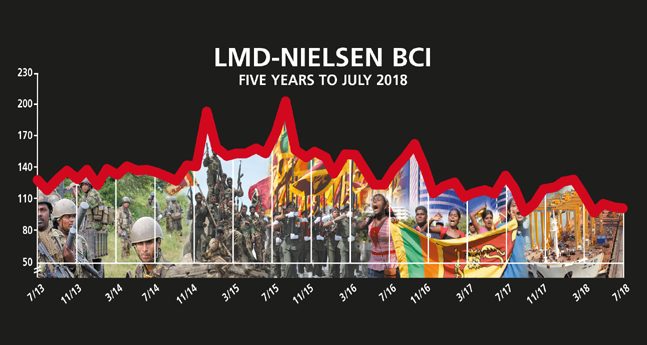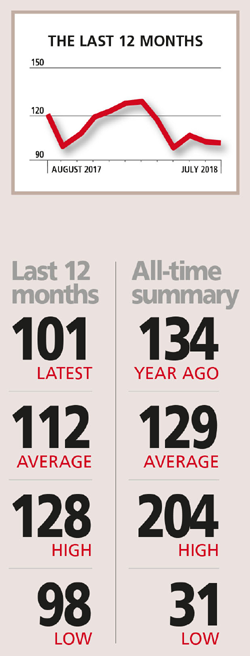August, 6, 2018

Sri Lanka’s listed entities recorded robust earnings growth in the first quarter of 2018 with the banks, and finance and insurance companies leading the way – this despite relatively weak consumer demand and lacklustre corporate sentiment.
It has also been reported that the nation’s 55 largest state owned enterprises suffered a cumulative loss of close to Rs. 90 billion in 2017 amid energy entities recording major losses in the absence of a pricing formula at the time.
More recently, the president and prime minister decided to enforce fuel price revisions in accordance with a cabinet approved pricing formula. This came on the heels of the Ministry of Finance initially deciding to implement a fuel price hike only to see the state owned Ceylon Petroleum Corporation (CPC) opting to sell at the old rates while the leading private sector provider of petroleum heeded the ministry’s directive.
This sense of the private sector having to chart its own path is also reflected in the responses to the LMD-Nielsen Business Confidence Index (BCI) survey, which fails to make any headway in its latest edition.
 THE INDEX It’s seemingly a game of ‘wait and see’ as the BCI remained somewhat stable at 101 in July compared to 102 in the previous month. However, the index continues to linger below its 12 month average (112) and where it stood a year ago (134).
THE INDEX It’s seemingly a game of ‘wait and see’ as the BCI remained somewhat stable at 101 in July compared to 102 in the previous month. However, the index continues to linger below its 12 month average (112) and where it stood a year ago (134).
Nielsen’s Managing Director Sharang Pant observes: “After a drop in year on year inflation and the annual average for the first four months of 2018, prices are moving up again as the National Consumer Price Index (NCPI) registered 2.1 percent in May versus 1.6 percent in April. The increase is reflected in both the food and non-food baskets, which are expected to move up further following the second round of fuel price increases in early July.”
SENSITIVITIES High taxes, the political environment and inflation remain the top three concerns for business houses in Sri Lanka. However, businesspeople appear to be taking the initiative to come up with strategies and actions to overcome these challenges themselves, and find new opportunities for growth.
This is reflected in the comments of many survey respondents with one executive noting that “despite the fact that the economy is not doing too well, we have managed to expand our business and increase sales revenue. This is due to the positive decisions taken by our company.”
“At present, our company is displaying signs of growth due to the fact that it has executed several strategies during the last few months to counter any adverse effects that arise from the economy,” says another.
PROJECTIONS The state of the local economy, a plummeting rupee, the prospect of spiralling costs and unfolding world events formed the basis for our less than promising outlook for the index last month.
In our latest assessment as well, given the lack of any real cause for optimism, we believe that the road ahead may prove to be challenging for corporates. It is unlikely therefore, that business sentiment will pick up appreciably in the near term.
– LMD
Video Story